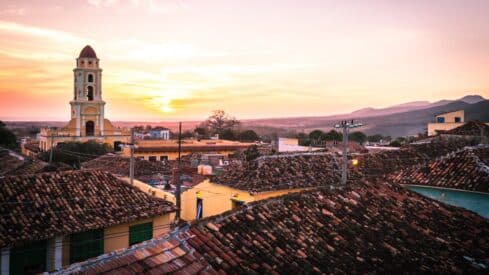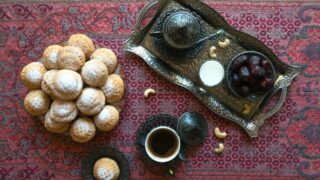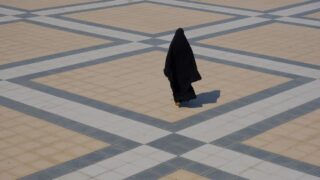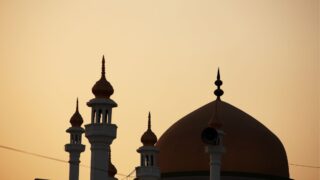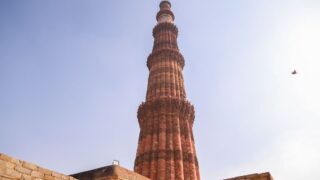The semi-dark Caribbean skies brighten in the early morning to the sound of the Adhan being called from a nearby minaret for Fajr Prayer. The Muslim ummah arise to the auspicious occasion of `Eid Al-Adha as the stars twinkle goodbye and the light of day stretches across the horizon in Trinidad.
Part of the twin Caribbean islands known as Trinidad and Tobago, there are an estimated 80 000 Muslims with about 120 neighborhood mosques. The ummah (Muslim community in Trinidad) has its own Islamic-run schools and local Islamic TV station. There is now a national holiday for Eid Al-Fitr, but one has not yet been secured for Eid Al-Adha, so it is a normal working day for most people.
The Eid khutbah is scheduled before the beginning of work or school at 7am in an open field as well as in the mosques. By 6.45am cars stream into the parking area of the open-air Hockey Centre in Macoya which is the designated place for the Eid prayer. My family make our way to the trim grassy field where sheets of plastic are laid out in rows facing east in preparation for the sermon. My daughters and I unroll our prayer mats and sit with our hands raised to shelter us from the blazing morning sun. The ummah gathers.
The fragrance of freshly cut grass wafts across the morning air as we await the performance of the Eid prayer before the start of the khutbah. A few photographers from the media make their way to take snapshots of the men’s section for coverage in the daily newspapers.
The gathering is not as vibrant or as well-attended as in `Eid Al-Fitr. The women’s clothing are darker in color with fewer adornments. Greetings, hugs, and talking cease as the prayer begins, followed by the khutbah which usually begins with the commemoration and remembrance of the great trial of Prophet Ibrahim (peace and blessings be upon him) and the many lessons that can be derived from it, and how it relates to Muslims today.
I return home as my family waves goodbye. My daughters go to school and my husband to work; they will all be late, but the authorities are lenient towards religious occasions in a country with such diverse cultural and religious backgrounds.
My day at home begins with clearing out the freezer and cleaning the sink area for the meat which is expected after midday. A car honks outside. Two brothers with extra large picnic containers call out, “as-salamu alaykum Sister.Eid Mubarak.” They hand me a bag of red meat and no sooner do I take it when they return to the pick-up to honk outside my next-door neighbor’s house. They continue down our no-through-traffic street to deliver meat to every house in our Muslim neighborhood. The honking of cars and greetings from neighbors beckon me outside throughout the afternoon as the distribution of meat begins.
“Eid Mubarak,” says my neighbor Saleema, as she hands me a bag of still warm meat. “This is lamb.” By mid-afternoon my husband arrives home with one third of our share of the meat of a sacrificed cow. The process of getting the meat into the freezer and labeled for family and friends continues.
Even though the festival of `Eid Al-Adha is not celebrated with elaborate customs and rituals as seen in other countries, in Trinidad, the essence remains the same – it is a time of reflection to recognize that all blessings come from Almighty Allah and to pay respect to the unselfish act of sacrifice.
By Nadia Ali
Excerpted with kind permission from sisters-magazine.com


